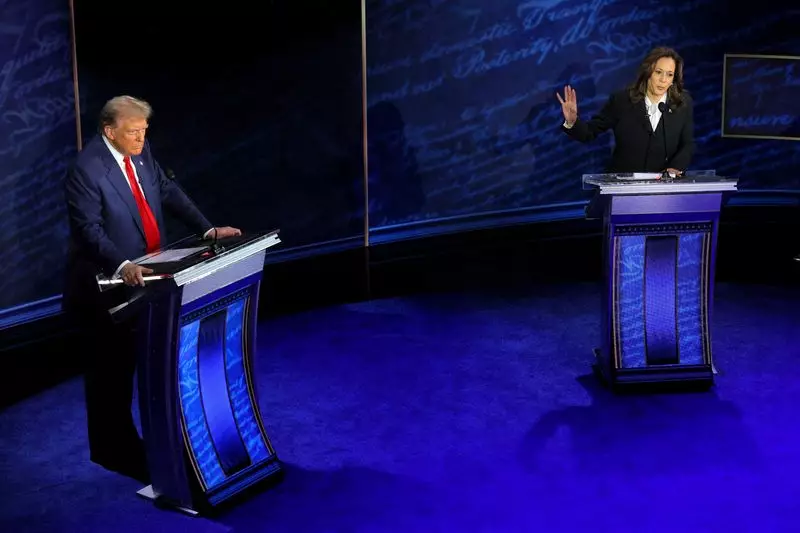The upcoming U.S. presidential election, scheduled for November 5, is proving to be a significant influence on corporate investment strategies, as indicated by a recent survey among chief financial officers (CFOs). Conducted by the Federal Reserve Banks of Atlanta and Richmond in collaboration with Duke University’s Fuqua School of Business, the survey reveals that a substantial portion of CFOs are adjusting their investment plans due to election-related uncertainties. This could have profound implications for short-term economic growth.
Financial Caution Amid Political Turmoil
Out of 479 surveyed CFOs, a striking 21% reported that their companies had delayed investments due to the unpredictable nature of the imminent elections. Additionally, more than 15% indicated they had reduced their investment plans. Collectively, this results in 30% of firms admitting that election uncertainty has played a role in their capital allocation decisions. Although more than 64% claimed there was no discernible impact on their strategies, the implications of political calculus on investment remain troubling.
The uncertainty surrounding elections often stirs hesitation among business leaders, primarily because the potential shifts in regulatory, monetary, and fiscal policies can significantly alter the economic landscape. In volatile political climates, firms are more inclined to hold off on substantial capital expenditures, choosing instead to adopt a more conservative approach.
The Psychology of CFOs During Election Season
The survey highlights a correlation between election uncertainty and overall business outlook. CFOs who expressed concern over potential election outcomes derived a more pessimistic outlook, lacking confidence in the economy’s potential to recover swiftly. Companies that were most apprehensive were notably less inclined to invest in growth-related activities, characterizing their expenditures as primarily focused on cost-reduction rather than capacity expansion.
Economic analysts Brent Meyer and Daniel Weitz noted this trend suggests that apprehensions regarding the elections are causing a ripple effect, leading some firms to sit on their cash reserves. A significant consequence of this behavior is the potential stalling of economic momentum, as delayed or scaled-back investments can slow job creation and innovation.
Notwithstanding these concerns, the survey outcomes also indicate that a majority of CFOs maintain a positive view of their companies’ prospects. Approximately 69% of respondents expressed optimism about their organizations, while about 60% felt similarly regarding the broader economic environment. This juxtaposition of cautiousness towards investments amidst a fundamentally optimistic outlook presents a complex understanding of the current corporate climate.
The findings reflect a nuanced reality in which CFOs are torn between their confidence in their businesses and the external uncertainties imposed by the political landscape. The fear of disruptive policy changes could lead to a rational decision to prioritize financial stability over expansion.
Reflecting on policy issues, regulatory and monetary policies emerged as the primary concerns among CFOs, with 60% and 59% respectively highlighting them as pivotal considerations in the context of the upcoming elections. Corporate tax policies followed closely, commanding the attention of 54% of those surveyed. This focus underscores a heightened sensitivity to government intervention and its implications for business operations.
Interestingly, inflation—a subject that dominated concerns for much of the past year—has receded as a top priority. Only 8% of CFOs cited it as their main worry, indicative of the central bank’s recent efforts to curb inflation through monetary policy adjustments, including interest rate cuts.
As the U.S. presidential election approaches, corporate decision-makers are entering a precarious period of uncertainty. The caution exhibited by CFOs, while understandable, highlights how deeply intertwined political factors are with economic performance. The looming election threatens to stifle investment and slow economic growth, as businesses recalibrate their strategies in response to evolving political landscapes. Monitoring these trends will be crucial for understanding the implications for the economy both in the immediate and long-term future, as confidence and uncertainty continue to shape the corporate investment dialogue.

